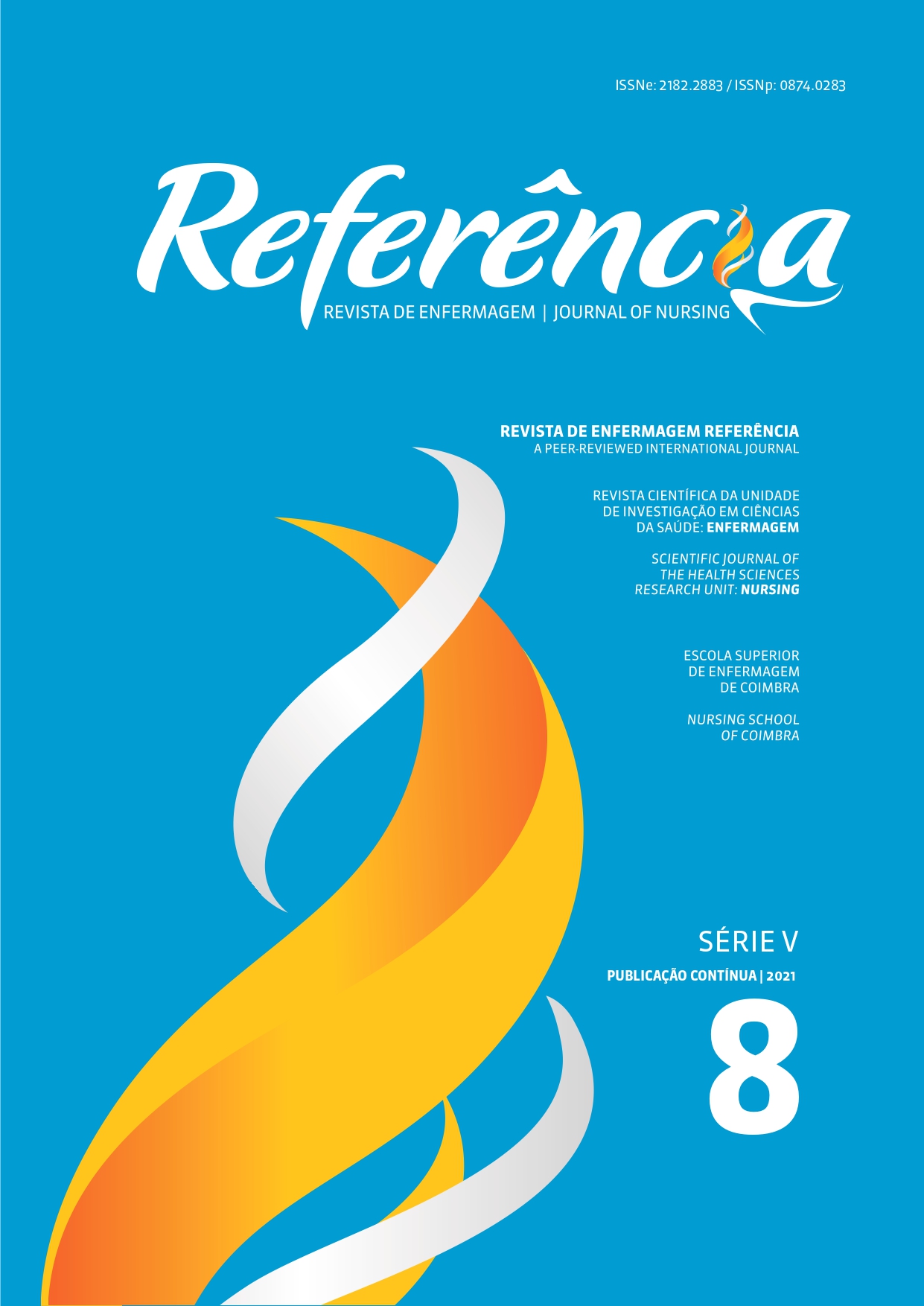Adolescents with type 1 diabetes mellitus and their process of developing autonomy for self-care
DOI:
https://doi.org/10.12707/RV20213Keywords:
diabetes mellitus, adolescent, self-care, personal autonomyAbstract
Background: Type 1 diabetes mellitus requires adolescents’ autonomy to perform self-care.
Objective: To analyze the process of developing autonomy for self-care in adolescents with type 1 diabetes mellitus.
Methodology: Descriptive-exploratory research with nine adolescents with type 1 diabetes mellitus. Data were collected through semi-structured interviews and interpreted using inductive thematic analysis.
Results: The process of developing autonomy in adolescents with diabetes begins with an interest in seeking knowledge about the disease and treatment, with the support of the social network, to gain the confidence in themselves to perform self-care. Obstacles to this process include difficulties in controlling diet, poor access to insulin therapy materials, and lack of safety in handling them.
Conclusion: It is essential to help these adolescents develop autonomy for self-care so that they can overcome difficulties in managing diabetes and prevent complications that can compromise their quality of life and put a burden on the health system.
Downloads
References
American Diabetes Association. (2020). Introduction: Standards of medical care in diabetes—2020. Diabetes Care, 43(1), S1-S2. https://doi.org/10.2337/dc21-Sint
Bariya, M., & Nayberg, I. (2017). Analysis of “Dose accuracy, injection force, and usability assessment of a new half-unit, prefilled insulin pen”. Journal of Diabetes Science and Technology, 12(2), 373-375. https://doi.org/10.1177/1932296817747621
Beck, R. W, Bergenstal, R. M., Cheng, P., Kollman, C., Carlson, A. L., Johnson, M. L., & Rodbard, D. (2019). The relationships between time in range, hyperglycemia metrics, and HbA1c. Journal of Diabetes Science and Technology, 13(4), 614-626. https://doi.org/10.1177/1932296818822496
Braun, V., & Clarke V. (2013). Successful qualitative research: A practical guide for beginners. Sage Publications.
Collet, N., Batista A. F., Nóbrega, V. M., Souza, M. H., & Fernandes, L.T. (2018). Self-care support for the management of type 1 diabetes during the transition from childhood to adolescence. Revista da Escola de Enfermagem da USP, 52:e03376. https://doi.org/10.1590/S1980-220X2017038503376
Costa, B. R. (2018). Bola de neve virtual: O uso das redes sociais virtuais no processo de coleta de dados de uma pesquisa científica. Revista Interdisciplinar de gestão social, 7(1), 15-37. https://periodicos.ufba.br/index.php/rigs/article/view/24649
Cruz, D. S., Collet, N., & Nóbrega, V. M. (2018). Qualidade de vida relacionada à saúde de adolescentes com dm1- revisão integrativa. Ciência e Saúde Coletiva, 23(3), 973-989. https://doi.org/10.1590/1413-81232018233.08002016
Dias, I. W., & Junqueira, V. (2020). Aproximação dialógica às necessidades de saúde em usuários de insulina acompanhados no Programa de Automonitoramento Glicêmico. Interface (Botucatu), 24(1), e190441. https://doi.org/10.1590/Interface.190441
Feitor, S., Veiga, A. R., Silva, A., Silva, V., Duarte, S., Rui Sousa, M., & Bastos, F. (2020). Empowerment comunitário em saúde escolar: Adolescente com diabetes mellitus tipo 1. Revista Rol de Enfermería, 43(1), 364-373. https://www.researchgate.net/publication/340607057
Fragoso, L. V., Cunha, M. C., Fragoso, E. B., & Araújo, M. F. (2019). Self-care among type 1 diabetes mellitus bearing people: Adolescents experiences. Revista Fundamental Care Online, 11(2), 289-296. https://doi.org/10.9789/2175-5361.2019.v11i2.289-296
International Diabetes Federation. (2019). IDF Diabetes Atlas (9th ed.). https://www.diabetesatlas.org/upload/resources/2019/IDF_Atlas_9th_Edition_2019.pdf
Jones, C. M., & Foli, K. J. (2018). Maturity in adolescents with Type 1 Diabetes Mellitus: A concept analysis. Journal of Pediatric Nursing, 42, 73-80. https://doi.org/10.1016/j.pedn.2018.07.004
Minayo, M. C. (2017). Amostragem e saturação em pesquisa qualitativa: Consensos e controvérsias. Revista Pesquisa Qualitativa, 5(7), 1-12. https://edisciplinas.usp.br/pluginfile.php/4111455/mod_resource/content/1/Minayosaturacao.pdf
Mok, E., Henderson, M., Dasgupta, K., Rahme, E., Hajizadeh, M., Bell, L., Prevost, M., Frei, J., & Nakhla M. (2019). Group education for adolescents with Type 1 Diabetes during transition from paediatric to adult care: Study protocol for a multisite, randomised controlled, superiority trial (GET-IT-T1D). BMJ Open, 9, e033806. http://dx.doi.org/10.1136/bmjopen-2019-033806
Strand, M., Broström, A., & Haugstvedt, A. (2019). Adolescents’ perceptions of the transition process from parental management to self-management of type 1 diabetes. Scandinavian Journal of Caring Sciene, 33(1), 128-135. https://doi.org/10.1111/scs.12611
Sociedade Brasileira de Diabetes. (2019). Diretrizes da Sociedade Brasileira de Diabetes 2019-2020. https://www.diabetes.org.br/profissionais/images/DIRETRIZES-COMPLETA-2019-2020.pdf
Vloemans, A. F., Eilander, M. M., Rotteveel, J., Waarde, W. M., Houdijk, E. C., Nuboer, R., Winterdijk, P, Snoek, F. J., & De Wit, M. (2019). Youth with Type 1 Diabetes taking responsibility for selfmanagement: The Importance of executive functioning in achieving glycemic control. Diabetes Care, 42, 225–231. https://doi.org/10.2337/dc18-1143
World Health Organization. (1986). Young people’s health: A challenge for society. Report of a WHO Study Group on young people and Health for All by the Year 2000. https://apps.who.int/iris/handle/10665/41720
Zanatta, E. A., Scaratti, M., Argenta, C., & Barichello, A. (2020). Vivências de adolescentes com diabetes mellitus tipo 1. Revista de Enfermagem Referência, 5(4), e20044. https://doi.org/10.12707/RV20044






















